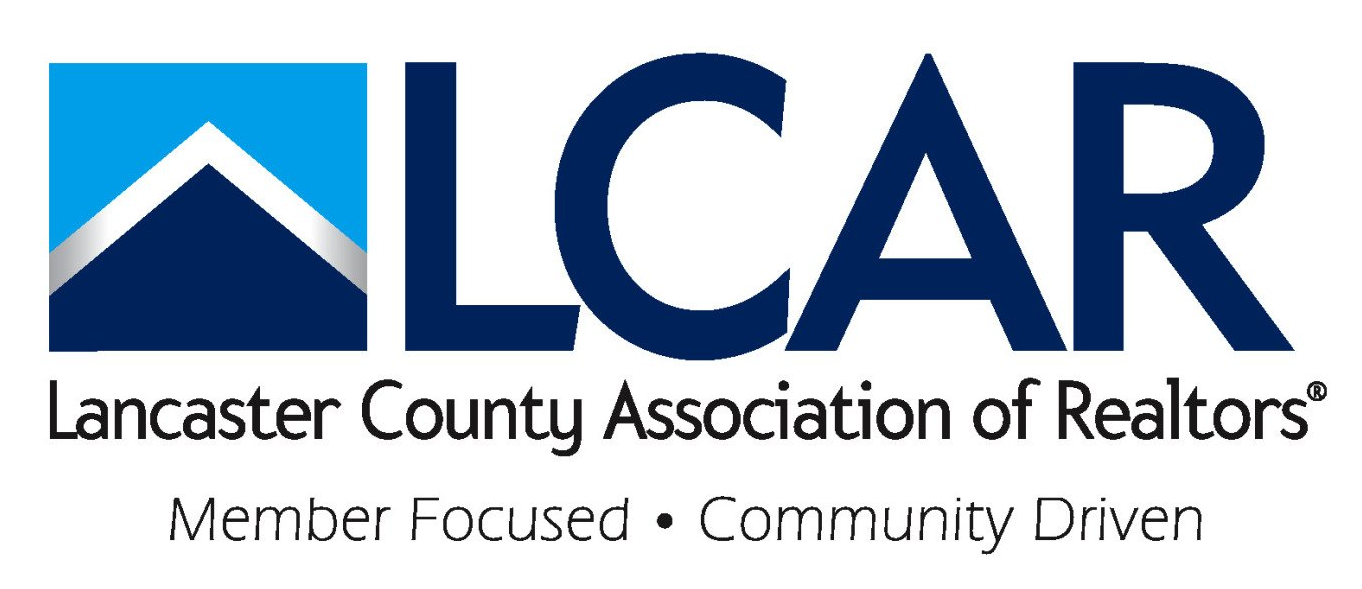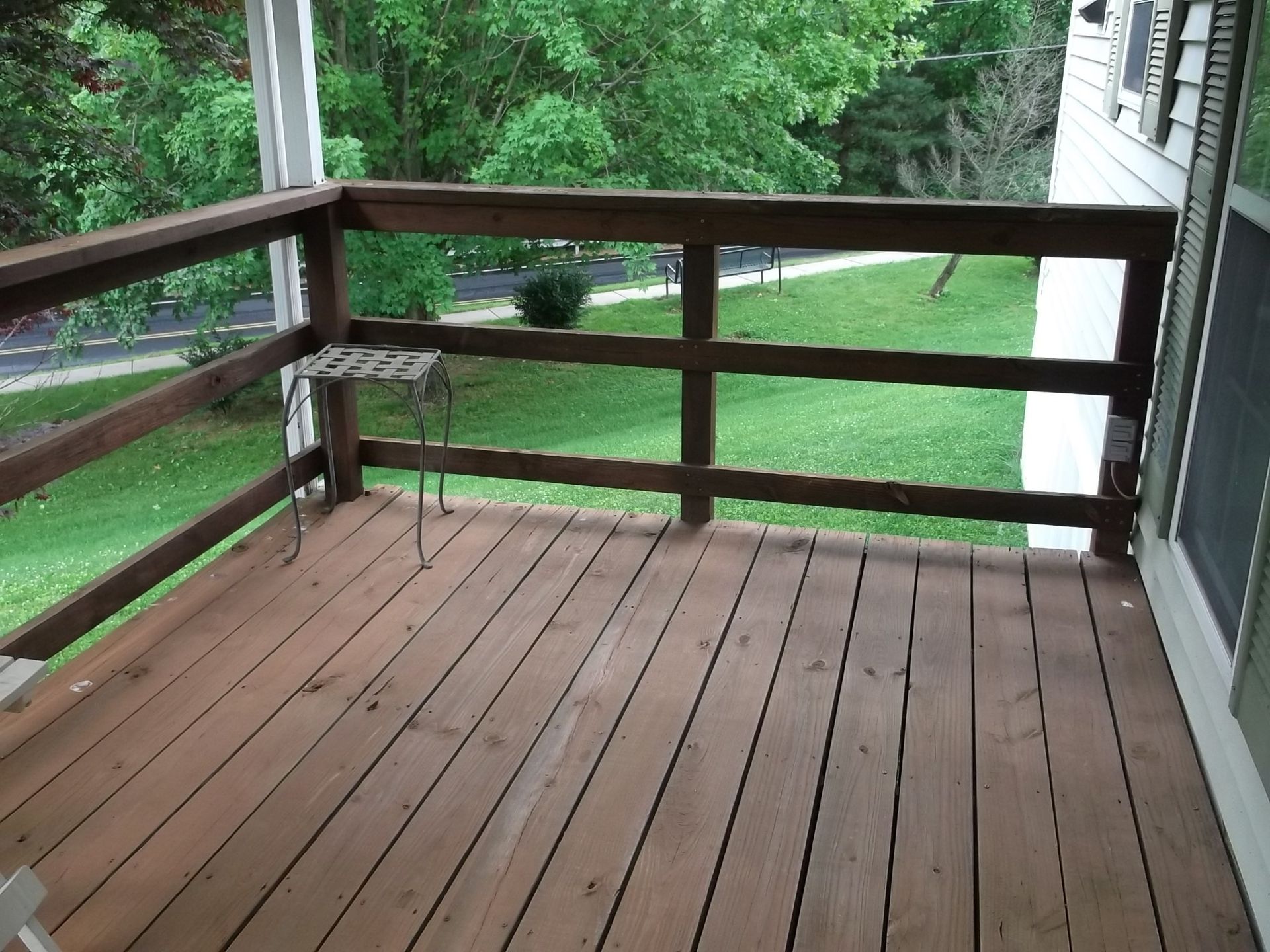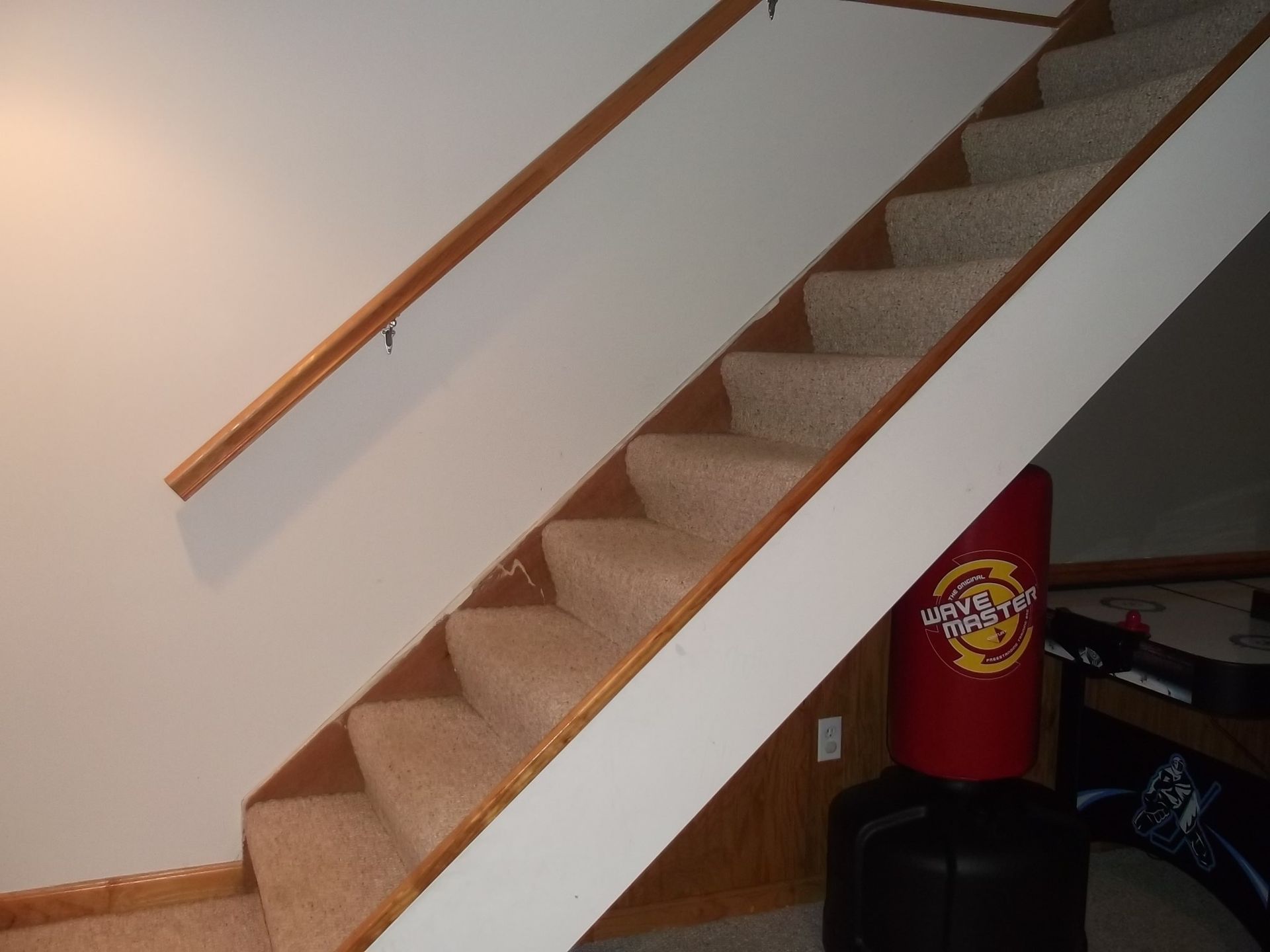The deck guard railing to the left provides little protection to small children as it can be climbed like a ladder. The height to grade beyond the guard railing was about 8’. That fall could injure a child or adult. This home was built in 2002 (prior to the current standards).
Guard Railings and Hand Railings


People often get confused with the terms “guard railings” and “hand railings”. Guard railings are installed along the outer perimeter of decks, balconies, and porches and other areas where there is a change in elevation, such as along an upper hallway, and helps prevent someone from falling off the walking surface. A hand railing, on the other hand, is installed on a staircase or ramp to provide a graspable surface to assist traversing the staircase or ramp.
Modern standards call for guard railings where there is a drop to another horizontal surface of, at least, 30”. For residential settings, guard railings should be at least 36” high and have no openings within it wider than 4” (codes for commercial guard railings differ from those for homes). These openings may be between balusters or spindles or between the bottom of the guard railing and the walking surface itself.
The 30” difference in height requirement extends out 36” away from a deck or porch. For example, 20 years ago, if a deck’s walking surface was 28” above the immediate grade, even if the grade then dropped off steeply after 12” away from the deck, a guard railing may not have been required at the deck. With more recent changes to the IRC (International Residential Code), the above example would require a guard railing. Keep in mind that home inspectors are not code compliance inspectors, yet a good home inspector is very familiar with the building codes and stays current with their changes (a new version of the IRC comes out every 3 years) and applications.
Many older homes that I inspect have porches or decks that have one or more horizontal members only below the top railing. These, in almost all cases, have openings far wider than 4” and most often present an easy opportunity for a small child to climb the horizontal members, like a ladder, and fall over the other side. Even installing lattice on an older railing can still provide locations for small feet to be inserted to climb up and fall over. Rigid balusters can most often be readily added to provide the needed safety.
I sometimes even run across vinyl guard railings on newer decks that are quite flimsy and don’t provide much protection from someone bumping into the guard railing and breaking through. If the guard railing has too much flexibility, it may not prevent someone from falling through the guard railing and falling off a deck or porch. The strength requirement calls for no more than 4” lateral movement when 200 lbs. of force is applied. Most modern sturdy vinyl guard railings have either wood or steel inside the main vinyl components to provide strength.
Hand railings are needed at all staircases that have 4 or more steps. The walking surface of a deck or porch is considered a step, so even if there are only 3 more treads below the deck or porch, the staircase is considered 4 steps.
Proper hand railings and guard railings are a critical part of the home’s interior and exterior. They provide support to people, big and small, walking up or down staircases as well as helping to ensure that people can’t fall off a porch or deck or other change in elevation. Periodically checking the railings around your home can help ensure that they are solid and strong when you may need them most. Any damaged or loose railings should be repaired or replaced.
Facts, opinions and information expressed in the Blog represent the work of the author and are believed to be accurate, but are not guaranteed. The Lancaster County Association of Realtors is not liable for any potential errors, omissions or outdated information. If errors are noted within a post, please notify the Association. Posts represent the author's opinion and are not necessarily the opinion of the Association.















